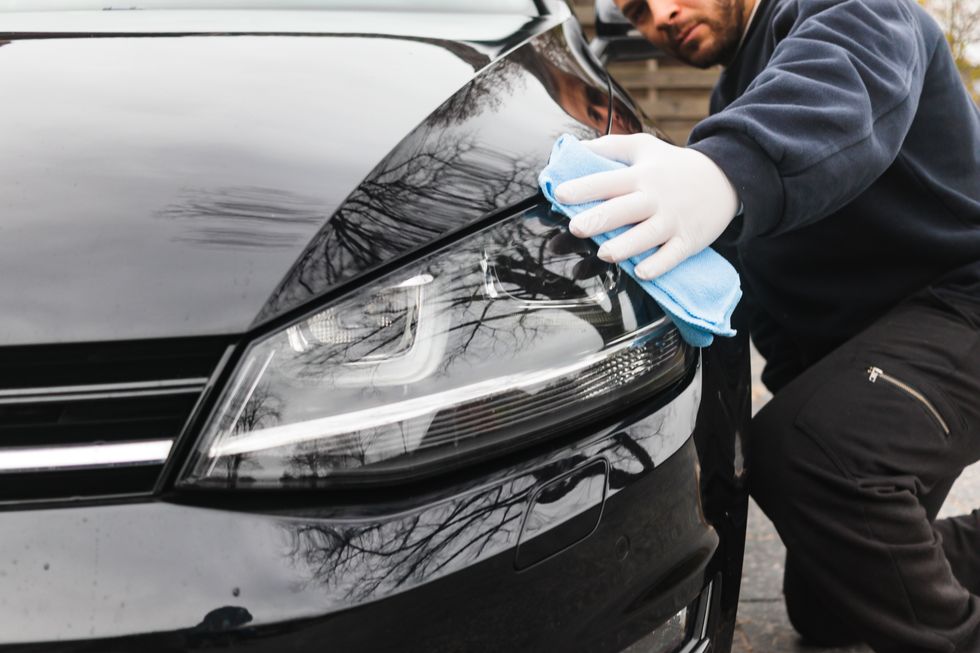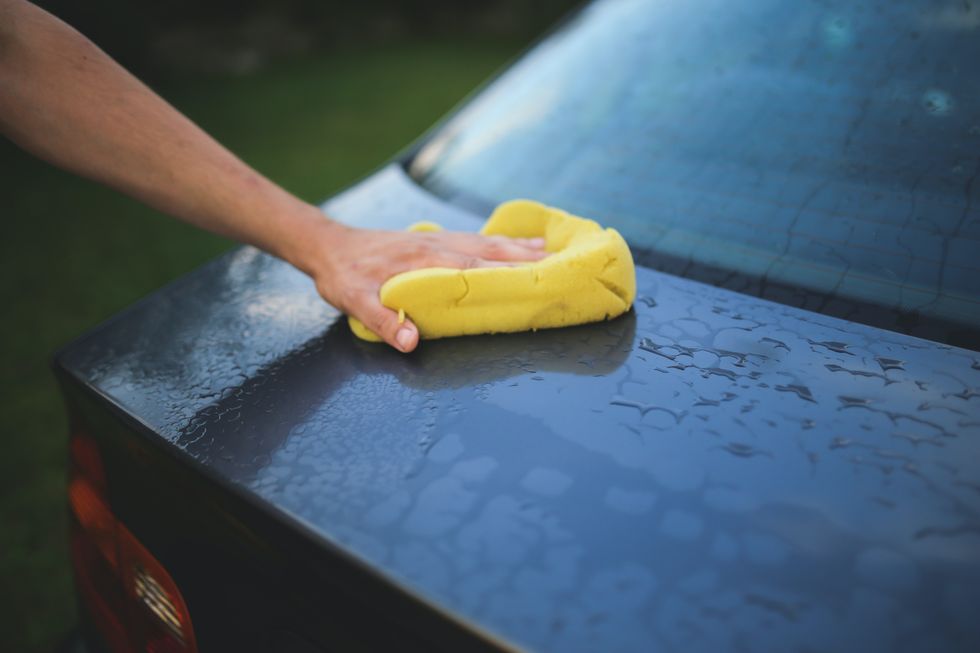
One expert said the hack can cause more damage than the scratch
PEXELS
The hack has been compared to rubbing sandpaper on the car's paintwork
Don't Miss
Most Read
Trending on GB News
Experts are warning motorists about the massive repair costs they face if they try a popular TikTok hack to remove scratches from their cars.
The cost of living crisis is having a devastating impact on millions of Britons, with many looking for ways to cut corners and avoid spending as much.
A TikTok video has gone viral in recent weeks instructing drivers how to clean their car and cover any cosmetic issues.

The solution can be corrosive and leave drivers with expensive repairs
PEXELS
In the trend, drivers are advised to combine equal parts of coconut oil and vinegar, mix them together and rub the mixture on the car with a cloth.
Videos appear to show the scratches immediately disappearing, although experts are warning that not everything is how it may seem.
Sal Patel, from Finest Car Mats, said that drivers could end up forking out hundreds of pounds to repair their cheap attempt at maintaining their car.
He added: “What is really happening is the mixture is acting like a moisturiser, covering up the scratches. When the mixture dries out the scratch will be visible again.
“Not only doesn't this hack work but it could cause more damage to your paint job and end up costing you hundreds to have it fixed by a professional."
Drivers are often told to be mindful of such “cleaning” hacks as the solution can seriously damage whatever surface it is being rubbed on.
Problems will then continue to persist as the solution may not work properly or it could only provide a temporary fix until they wash their car or it rains.
Using vinegar on a car’s paintwork can have huge consequences as it can cause corrosion and damage the paint further.
If it is wiped over a clear coat of paint on a car, it will eventually make the solution look “dull in appearance”.
Sal Patel continued, saying: “Vinegar also doesn't have much lubrication compared to products meant for fixing scratches either, so when you move your cloth over your scratches you can cause more damage.
“Non-lubricating solutions act like sandpaper when your cloth comes into contact with any dirt, this will result in your car having dull areas which are costly to fix.
“For this reason, you shouldn't use vinegar for removing scratches, or cleaning your car.”
LATEST DEVELOPMENTS:

The solution may only last until the driver washes the car, or when it rains
PEXELS
The AA states that drivers could use car polish if the scratch is shallow, or coloured waxes for scratches that are deeper into the car’s paintwork.








